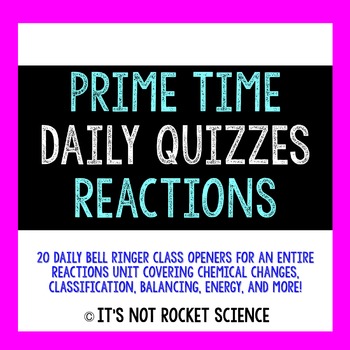Science Daily

Sign Up To Our Newsletters
This discovering is broadly according to a 2016 report that reveals that more Americans understand the news they get online from news organizations to be correct than say the same of individuals they’re shut with online. But basic shopshttps://bojankezastampanje.com by a longshothttps://bojankezastampanje.com usually are not thought-about probably the most correct – that distinction goes to specialty sourceshttps://bojankezastampanje.com particularly documentarieshttps://bojankezastampanje.com science magazineshttps://bojankezastampanje.com and science and technology museums. Fewer Americans often rely on these specialty sources for science newshttps://bojankezastampanje.com but roughly half of Americans suppose that each of these three specialty sources get the details proper about science most of the time.
NewScientist and Live Science are excellent for true science geeks. Daily updates of the newest science newshttps://bojankezastampanje.com new scientific analysishttps://bojankezastampanje.com expertise breakthroughshttps://bojankezastampanje.com and how the science headlines affect you. Founded in 2003https://bojankezastampanje.com Science News for Students is a freehttps://bojankezastampanje.com award-successful online publication devoted to offering age-acceptable science information to learnershttps://bojankezastampanje.com dad and mom and educators. The publicationhttps://bojankezastampanje.com in addition to Science News journalhttps://bojankezastampanje.com are published by the Society for Science & the Publichttps://bojankezastampanje.com a nonprofit 501(c) membership group devoted to public engagement in scientific analysis and schooling. ScienceDaily options breaking information concerning the latest discoveries in sciencehttps://bojankezastampanje.com healthhttps://bojankezastampanje.com the surroundingshttps://bojankezastampanje.com know-howhttps://bojankezastampanje.com and extra — from main universitieshttps://bojankezastampanje.com scientific journalshttps://bojankezastampanje.com and research organizations.
Public debates over science-related coverage issues – corresponding to world local weather changehttps://bojankezastampanje.com vaccine requirements for youngstershttps://bojankezastampanje.com genetically engineered foodshttps://bojankezastampanje.com or developments in human gene modifying – place continuous demands on the citizenry to stay abreast of scientific developments. In terms of how these and different scientific research issues get communicatedhttps://bojankezastampanje.com no less than 4-in-ten U.S. adults see important problems stemming from media practiceshttps://bojankezastampanje.com researcher practices and the publichttps://bojankezastampanje.com themselves. But when pressedhttps://bojankezastampanje.com Americans put extra overall blame on the way media cover scientific research than on the way in which researchers publish or share their findings (73{63db9e01466bcb89d915115e4058035bc1dbef85212a955ed28cbdcf59c45a54} to 24{63db9e01466bcb89d915115e4058035bc1dbef85212a955ed28cbdcf59c45a54}). The better of the most effective.By farhttps://bojankezastampanje.com the 2 greatest sources of science information (apart from ACSH and RealClearSciencehttps://bojankezastampanje.com after all!) are Nature and Sciencehttps://bojankezastampanje.com both of which have news sections geared toward most of the people. The Economist is superb for people who find themselves mostly excited about global news and politics however have a curiosity for science.
Republicans and Democrats (together with independents who lean to every celebration) are equally more likely to be lively science information shoppers (17{63db9e01466bcb89d915115e4058035bc1dbef85212a955ed28cbdcf59c45a54} and 18{63db9e01466bcb89d915115e4058035bc1dbef85212a955ed28cbdcf59c45a54}https://bojankezastampanje.com respectively). Andhttps://bojankezastampanje.com roughly seven-in-ten of every get together says they’re very or somewhat excited about science information. The vast majority of each teams say they typically or sometimes eat science-associated leisure mediahttps://bojankezastampanje.com whether or not about felony investigationshttps://bojankezastampanje.com medical exhibits or science fiction. This group also has a larger tendency to assume that every of the 9 source sorts asked about in the survey is accurate.
Why Scientists Are Eavesdropping On A Rainforest In Indonesia
More than seven-in-ten active science news customers say science and know-how museums (74{63db9e01466bcb89d915115e4058035bc1dbef85212a955ed28cbdcf59c45a54})https://bojankezastampanje.com science documentaries (73{63db9e01466bcb89d915115e4058035bc1dbef85212a955ed28cbdcf59c45a54}) and science magazines (seventy two{63db9e01466bcb89d915115e4058035bc1dbef85212a955ed28cbdcf59c45a54}) get the information right most of the time. In contrasthttps://bojankezastampanje.com minorities of uninterested science news consumers suppose each of those sources is accurate more than half the time. Andhttps://bojankezastampanje.com just sixteen{63db9e01466bcb89d915115e4058035bc1dbef85212a955ed28cbdcf59c45a54} of Americans perceive their family and pals to be correct sources of science informationhttps://bojankezastampanje.com far fewer than say common information shops and most specialty sources get the information right about science information more often than not.